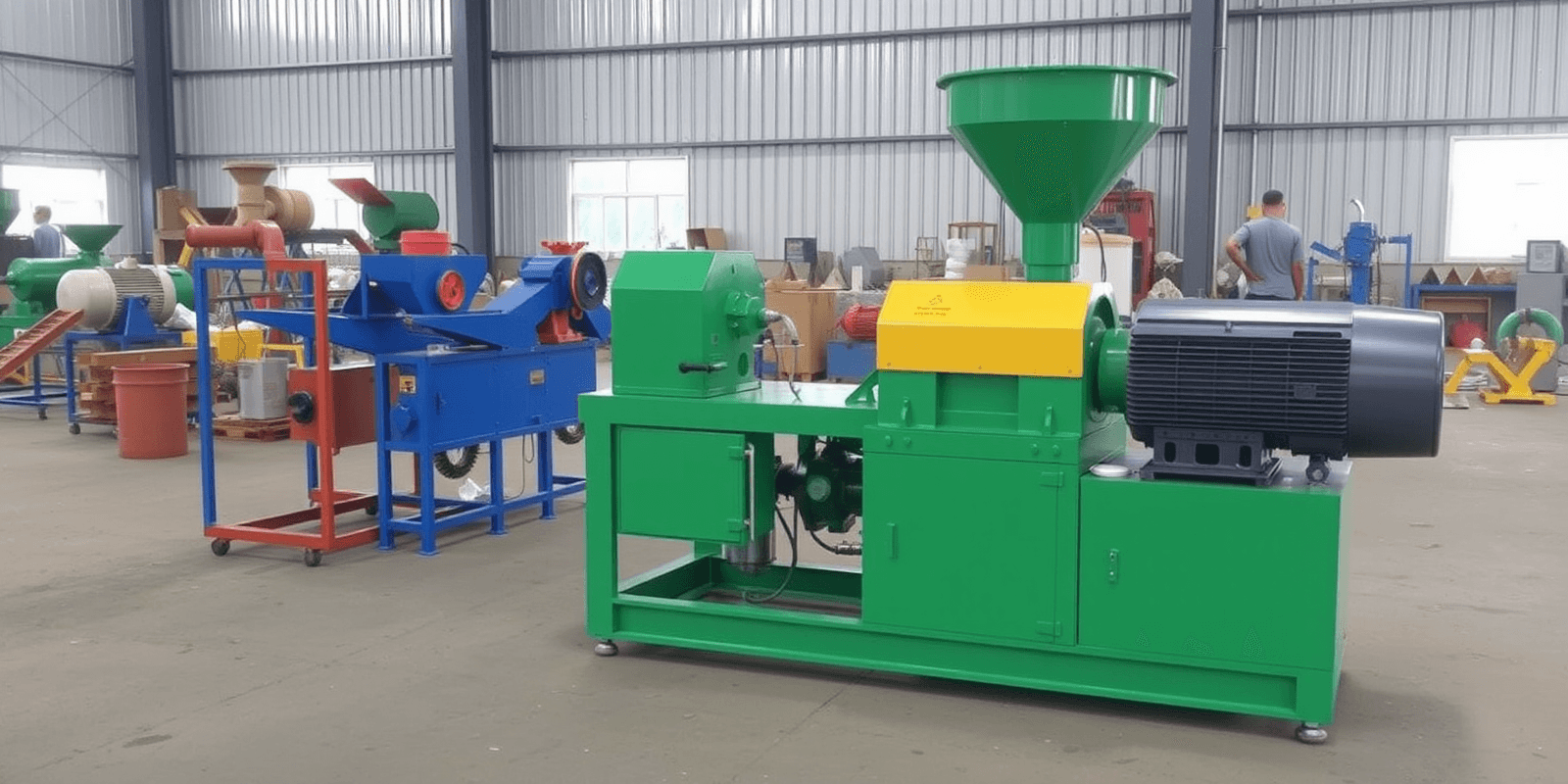Physical Address
304 North Cardinal St.
Dorchester Center, MA 02124
Physical Address
304 North Cardinal St.
Dorchester Center, MA 02124

In the ever-evolving world of manufacturing and recycling, plastic granulator machines play a pivotal role in transforming waste plastic materials into reusable granules. These machines are essential for businesses working in the plastic reprocessing sector, and selecting the right granulator is crucial to ensure efficiency and productivity. This guide aims to provide a comprehensive framework for choosing the best plastic granulator machine by considering performance metrics and operational requirements.
Plastic granulators are machines that shred plastic materials into smaller pieces or granules. They are primarily used in recycling facilities and manufacturing plants to process various types of plastics, including polyethylenes, polypropylenes, and polyvinyl chlorides (PVC). The granulation process not only helps in reducing the size of plastic waste but also prepares it for further recycling, thus contributing significantly to sustainability efforts.
When selecting a plastic granulator, several performance factors should be considered. These aspects directly affect the efficiency, output quality, and operational costs of the machine.
The cutting capacity of a granulator is one of the foremost considerations. This reflects how much material the machine can process in a given timeframe. It’s essential to match the cutting capacity with the anticipated volume of waste plastic. Higher capacity machines can handle larger volumes, which is advantageous for businesses with significant waste generation.
The design and material quality of the blades determine not only the granulator’s effectiveness but also its longevity. High-quality, durable blades made from hardened steel are preferable as they provide sharper cuts and longer service life. Additionally, consider the design of the blades; serrated blades may be more efficient for certain types of plastics while straight blades can be advantageous in other scenarios.
The motor power of a granulator will influence both its performance and energy efficiency. A robust motor allows for optimal processing of thicker or tougher plastic materials. Efficiency ratings, often expressed in horsepower (HP), can guide potential buyers in selecting a machine that balances power with energy consumption, which can lead to significant cost savings over time.
The size reduction ratio is crucial as it indicates how effectively the machine can reduce the original size of the plastic. A higher size reduction ratio implies finer granules, which are often more desirable for further recycling or manufacturing processes. Consider the granules’ required size for the specific application to determine the necessary reduction ratio.
Operational noise can be a significant concern, particularly in environments where noise regulations are in place or where employees may work in close proximity to machinery. Assess the decibel ratings of potential granulators and choose machines that operate quietly without compromising performance.
Beyond performance, operational requirements such as space, ease of use, and maintenance need to be evaluated.
Plastic granulators can vary considerably in size. It’s crucial to analyze the available space in your facility before selecting a machine. Ensure that you have adequate space not only for the granulator itself but also for material feed-in and the emitted granules.
In an increasingly automated world, the granulator’s control systems can greatly enhance operational efficiency. Look for machines that offer programmable settings, allowing for quick adjustments to processing requirements. Additionally, advanced systems that include auto sensors can monitor the machine’s performance and alert operators to any potential issues.
Regular maintenance is essential for any manufacturing equipment to run smoothly. Research service support offerings from the granulator manufacturer, including the availability of replacement parts and technical support. A machine that is easy to maintain will minimize downtime, thereby maximizing productivity.
With myriad brands and models available, it’s essential to conduct thorough research prior to making a selection. Consider established manufacturers with a solid reputation in the industry. Look for user reviews, case studies, and performance comparisons to gauge real-world effectiveness.
User reviews provide insight into the strengths and weaknesses of different models. They offer a reflection of actual performance and can highlight issues that may not be apparent from specifications alone. Websites like MachineryTrader and reviews on distributors’ sites can be valuable resources.
Consulting with industry experts or suppliers can provide nuanced insights that are tailored to specific operational needs. Their experience may also bring forward considerations that have not yet been accounted for.
If feasible, arrange for a demonstration or trial period for machinery before making a purchase. Testing a granulator’s performance in a real-world setting will provide a clear perspective on its capabilities and any potential issues.
While the initial purchase price of a plastic granulator is a significant factor, it’s essential to consider the total cost of ownership over the machine’s operational lifespan. This includes energy consumption, maintenance, and potential downtime costs. Sometimes, a slightly more expensive machine may prove to be more cost-effective in the long run due to its efficiency and reliability.
Selecting the right plastic granulator machine is a critical decision that can dramatically impact productivity and efficiency in material processing operations. By carefully evaluating performance factors and aligning them with your specific operational requirements, you can make an informed choice that meets your business’s needs. Investing time in research, consulting experts, and considering total costs will lead to the most effective decision, ultimately supporting your sustainability and productivity goals in the plastic reprocessing industry.